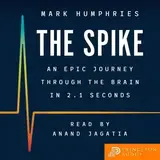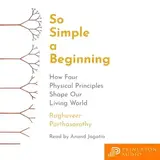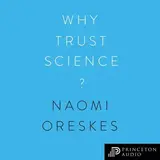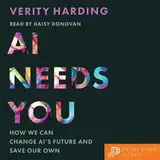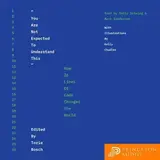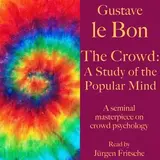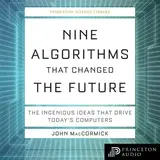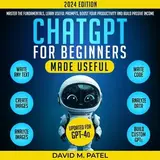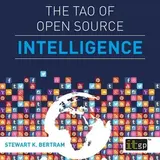

Artificial You
Narrador: Katherine Fenton
Duración 5h 11m
"Entertaining and profound."—Martin Rees, Astronomer Royal
Hailed by the
Washington Post as "a sure-footed and witty guide to slippery ethical terrain."
This audiobook narrated by Katherine Fenton take you on a philosophical exploration of AI and the future of the mind
Humans may not be Earth's most intelligent beings for much longer: the world champions of chess, Go, and
Jeopardy! are now all AIs. Given the rapid pace of progress in AI, many predict that it could advance to human-level intelligence within the next several decades. From there, it could quickly outpace human intelligence. What do these developments mean for the future of the mind?
In
Artificial You, Susan Schneider says that it is inevitable that AI will take intelligence in new directions, but urges that it is up to us to carve out a sensible path forward. As AI technology turns inward, reshaping the brain, as well as outward, potentially creating machine minds, it is crucial to beware. Homo sapiens, as mind designers, will be playing with "tools" they do not understand how to use: the self, the mind, and consciousness. Schneider argues that an insufficient grasp of the nature of these entities could undermine the use of AI and brain enhancement technology, bringing about the demise or suffering of conscious beings. To flourish, we must grasp the philosophical issues lying beneath the algorithms.
At the heart of her exploration is a sober-minded discussion of what AI can truly achieve: Can robots really be conscious? Can we merge with AI, as tech leaders like Elon Musk and Ray Kurzweil suggest? Is the mind just a program? Examining these thorny issues, Schneider proposes ways we can test for machine consciousness, questions whether consciousness is an unavoidable byproduct of sophisticated intelligence, and considers the overall dangers of creating machine minds.
Susan Schneider is the NASA/Baruch Blumberg Chair at the Library of Congress and the director of the AI, Mind and Society Group at the University of Connecticut. Her work has been featured by the
New York Times,
Scientific American,
Smithsonian, Fox TV, History Channel, and more. Her two-year NASA project explored superintelligent AI. Previously, she was at the Institute for Advanced Study in Princeton devising tests for AI consciousness. Her books include
The Language of Thought,
The Blackwell Companion to Consciousness, and
Science Fiction and Philosophy.
Katherine Fenton is an award-winning voice actor and the narrator of many audiobooks, including Ira Levin's
Rosemary's Baby, Elizabeth Gilbert's
The Last American Man, and
The Shock Doctrine by Naomi Klein."Finalist for the PROSE Award in Philosophy, Association of American Publishers""Packed with material that enlightens new ways of thinking about a hot topic. . . . a philosophical tour with real-world implications and it'll appeal most to readers who enjoy playing out scenarios. . . . One of the benefits of learning about AI is better understanding the human mind, and this book—while challenging—offers an accessible, enjoyable intro for both."---David DiSalvo, Forbes"Schneider is a sure-footed and witty guide to slippery ethical terrain. Her exposition of the consciousness problem is laced with helpful examples. It pries clarity from the essential opacity of its central concepts, most important consciousness itself. And it is refreshingly candid."---Aziz Huq, Washington Post"[A] demanding dialogue between philosophy and science."---Andrew Robinson, Nature"[A] well-reasoned and thoughtful discussion about the need for AI researchers and policymakers to place more emphasis on the question of consciousness."---Martin De Saulles, Times Higher Education"This is a fun, provocative, thoughtful and interesting book to read. . . . As we rush, almost unthinkingly into an AI enhanced world this is a book that is well worth reading."---Simon Cocking, Irish Tech News"One of Forbes' Must-Read Brain Books of 2019""This book is a delight to read. Deeply satisfying: a double prolonged plea for humility as we explore questions [of AI and the nature of consciousness]. A stimulating and accessible blend of neuroethical speculation and provocation, all deriving from a deeply felt moral mission. In short, highly recommend."---John Banja, AJOB Neuroscience"Accessible and intriguing. . . . A significant contribution to some of the often-overlooked ethical issues surrounding the continued development of artificial intelligence."---Ken Daley, The Philosopher's Magazine
Publicado por: Princeton University Press
Título similares
Ver todosTambién te podría interesar...
Ver todos¿Cómo funciona?
Crear cuenta.
Crea una cuenta gratuita aquí.
Descarga la aplicación Voxa
Disponible para Android y iPhone en Google Play o App Store.
Pruébalo gratis 7 días
Tienes acceso a 200.000 libros y a toda la experiencia Voxa.
Puedes escuchar sin Internet
Descarga tus audiolibros favoritos y disfrútalos incluso sin conexión a Internet.







